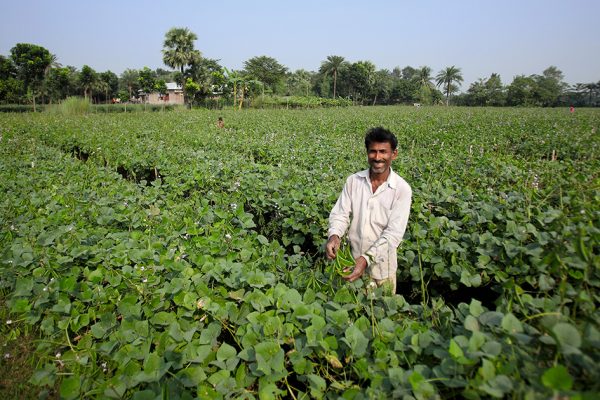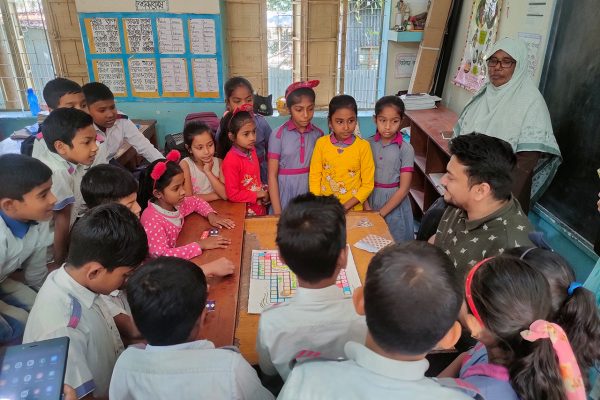Sir Fazle Abed’s Chapter in IFPRI Vision 2020 Book
Reading Time: < 1 minute
A recent IFPRI (International Food Poverty Research Institute) publication “The poorest and hungry: assessments, analyses, and actions”, features a chapter by BRAC’s founder Sir Fazle Hasan Abed.”Microfinance Interventions to Enable the Poorest to Improve Their Asset Base” is a thoughtful commentary on the potential of microfinance-based approaches to alleviate poverty.
 A recent IFPRI (International Food Poverty Research Institute) publication “The poorest and hungry: assessments, analyses, and actions”, features a chapter by BRAC’s founder Sir Fazle Hasan Abed.”Microfinance Interventions to Enable the Poorest to Improve Their Asset Base” is a thoughtful commentary on the potential of microfinance-based approaches to alleviate poverty. Through the spectrum of BRAC’s decades of experience in Bangladesh, sir Abed explains how microfinance works, what are its possibilities and limitations and how they may be overcome. He describes BRAC’s innovative “Targeting the Ultra Poor” program which resulted from the realization that the extremely poor households remain out of reach because of many socio-economic constraints. “The ultra poor need a “ladder” so they can climb up to a level of poverty at which, through microfinance,they can work toward emerging from poverty”, he says. Thus BRAC gives them productive assets and stipends for two years, allowing them to transfer from “ultra poverty” to “tolerable poverty” so that they can become regular microfinance clients.
A recent IFPRI (International Food Poverty Research Institute) publication “The poorest and hungry: assessments, analyses, and actions”, features a chapter by BRAC’s founder Sir Fazle Hasan Abed.”Microfinance Interventions to Enable the Poorest to Improve Their Asset Base” is a thoughtful commentary on the potential of microfinance-based approaches to alleviate poverty. Through the spectrum of BRAC’s decades of experience in Bangladesh, sir Abed explains how microfinance works, what are its possibilities and limitations and how they may be overcome. He describes BRAC’s innovative “Targeting the Ultra Poor” program which resulted from the realization that the extremely poor households remain out of reach because of many socio-economic constraints. “The ultra poor need a “ladder” so they can climb up to a level of poverty at which, through microfinance,they can work toward emerging from poverty”, he says. Thus BRAC gives them productive assets and stipends for two years, allowing them to transfer from “ultra poverty” to “tolerable poverty” so that they can become regular microfinance clients.
This nurturing approach stems from the fact that BRAC is not in essence a microfinance organization, it is a development organization and microfinance serves as a tool and platform for its development work. BRAC famous “Microfinance Plus Plus” model “provides support in the form of linkages along the different points of a microenterprise’s supply chain”. BRAC connects borrowers to enterprise, provides inputs, and helps market their products. BRAC’s microfinance groups serve as platforms to train community health volunteers, to train women on legal rights, to spread social messages, etc.
A big advocate for scaling-up (“Small may be beautiful but large is necessary”), Sir Abed wraps up the chapter by advising on how to address expansion constraints.
You can access the full chapter on IFPRI website.
By Meri Poghosyan





